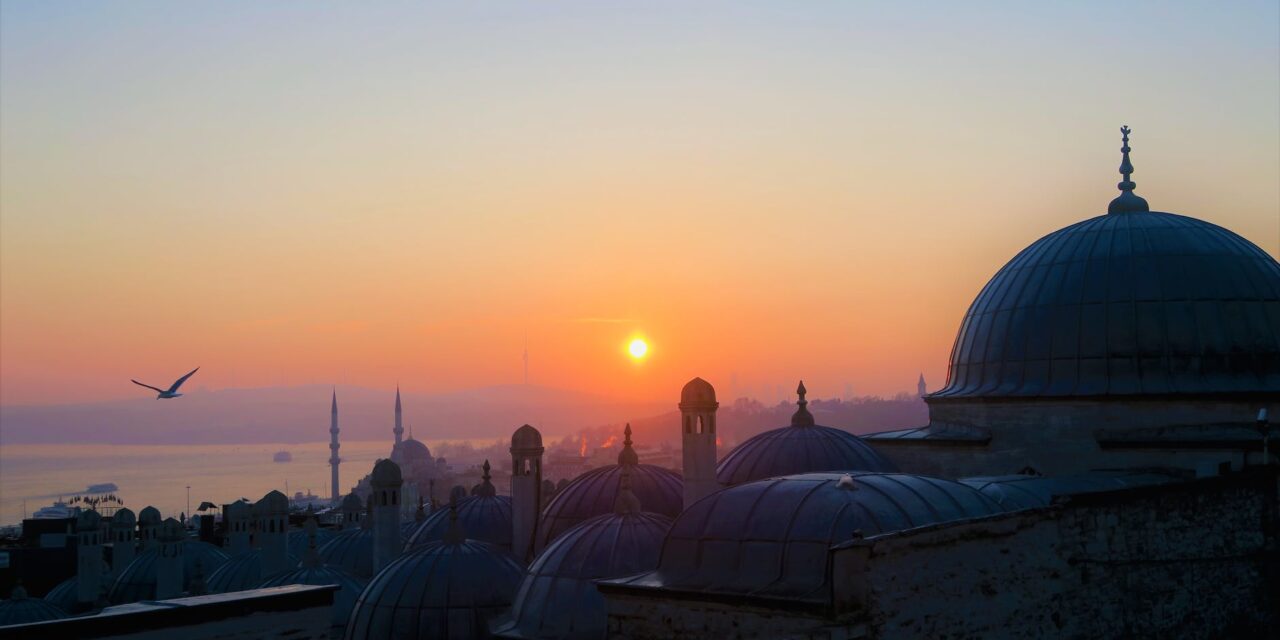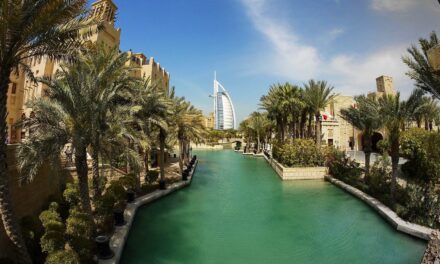As a city that attracts millions of tourists every year, Dubai is known for its luxurious lifestyle, stunning architecture, and vibrant culture. Religion is an important aspect of Dubai’s culture, and it plays a significant role in shaping the city’s social and legal landscape. In this article, I will provide an overview of religion in Dubai, including the major religions practiced in the city, the impact of religion on Dubai’s culture, and the laws that govern religious practices in Dubai.
Islam is the dominant religion in Dubai, with more than 75% of the population following the Sunni branch of Islam. The city is home to some of the most beautiful mosques in the world, including the Jumeirah Mosque, which is open to non-Muslim visitors. Christianity, Hinduism, Sikhism, and Buddhism are also practiced in Dubai, albeit in smaller numbers. The city’s diverse population has led to the establishment of several temples, churches, and gurudwaras, providing residents and visitors with a range of religious options.
Dubai is known for its religious tolerance, and the government has taken several steps to promote harmony and understanding between different religious communities. However, it’s important to note that there are laws that govern religious practices in Dubai, and visitors should be aware of these laws to avoid any legal issues. In the following sections, I will provide more detailed information about religion in Dubai and its impact on the city’s culture and laws.
Key Takeaways
- Dubai is a city that values religious diversity and tolerance.
- Islam is the dominant religion in Dubai, followed by Christianity, Hinduism, Sikhism, and Buddhism.
- Visitors to Dubai should be aware of the laws that govern religious practices in the city to avoid any legal issues.
Overview of Religion in Dubai
Dubai is a city located in the United Arab Emirates (UAE) and is known for its modern architecture, luxury shopping, and vibrant nightlife. However, it is important to note that Dubai is also a city with a strong religious culture. The official religion of Dubai and the UAE is Islam, which is practiced by the vast majority of the population.
According to Wikipedia, over 90% of the Emirati population are Sunni Muslims, while the remainder 5-10% are Shia Muslims. Islam is a monotheistic religion that emphasizes the importance of prayer, fasting, charity, and pilgrimage to Mecca. Visitors to Dubai should be aware of the importance of respecting Islamic customs and traditions.
Although Islam is the official religion of Dubai and the UAE, the country is known for being relatively tolerant of other religions. According to Dubai Online, followers of other religions (except Judaism) are tolerated. Visitors should also respect the Arabic culture and laws.
It is worth noting that public displays of affection, drinking alcohol in public, and eating during Ramadan are considered offensive and may result in legal consequences. Visitors should also dress modestly and avoid wearing revealing clothing in public places.
In addition to Islam, other religions also have a presence in Dubai. According to World Atlas, both Catholics and Protestants have a significant presence in the UAE. There are also 33 active churches in the country.
Overall, Dubai is a city with a strong Islamic culture and religious traditions. Visitors should be respectful of these customs and traditions while enjoying the city’s modern amenities and attractions.
Islam in Dubai
As the official religion of the United Arab Emirates, Islam is the predominant religion in Dubai. Around 76% of the population in the country are Muslims. Visitors should respect Islam and Arabic culture and laws. Virtually all Emiratis are Muslim and around 85 percent of these are Sunni.
Sunni Islam
Sunni Islam is the largest denomination of Islam and is practiced by the majority of Muslims in Dubai. Sunni Muslims believe that the first four caliphs were the rightful successors to Prophet Muhammad. They follow the teachings of the Prophet and the Quran, and believe that the Islamic community should be led by a caliph chosen by the people.
Shia Islam
Shia Islam is the second-largest denomination of Islam and is practiced by a minority of Muslims in Dubai. Shia Muslims believe that Ali, the cousin and son-in-law of the Prophet, was the rightful successor to Prophet Muhammad. They follow the teachings of the Prophet and the Quran, as well as the teachings of the Imams, who are believed to be divinely appointed leaders of the community.
In Dubai, both Sunni and Shia Muslims are free to practice their religion. The government provides support for mosques, Islamic centers, and religious education. Visitors should respect the Islamic faith and culture, and dress modestly when visiting mosques or other religious sites.
Christianity in Dubai
Dubai is a city in the United Arab Emirates (UAE), where Islam is the official religion. However, Christianity is also practiced in Dubai. According to a ministry report cited on Wikipedia, Christians account for 9% of the population of the UAE, which includes Dubai.
There are several Christian churches in Dubai, including the St. Mary’s Catholic Church, the Holy Trinity Church, and the Dubai Evangelical Church Centre. These churches offer services in various languages, including English, Arabic, Tagalog, and Malayalam.
Christians in Dubai are free to practice their religion, but they must do so within the guidelines set by the UAE government. For example, it is illegal to proselytize or distribute religious materials to Muslims.
Despite the restrictions, Christianity has a long history in the UAE, dating back to the arrival of the first Christian missionaries in the region in the 7th century. Today, Christians in Dubai continue to practice their faith and contribute to the city’s diverse religious landscape.
Hinduism in Dubai
Dubai is home to a significant Hindu community, with estimates suggesting that there are around 1.2 million Hindus living in the United Arab Emirates (UAE). Hinduism is mainly followed by the Indian and Nepali population in the UAE.
The Dubai Hindu Temple is a place of worship for Hindus in Dubai, UAE. The small temple caters to the large Hindu community in the United Arab Emirates. The temple is only a prayer hall with two altars or shrines (“Sannidhis”) on two sides, one for Shiva and one for Krishna. The temple is located in the Bur Dubai area of the city and is easily accessible by public transport.
The UAE government has been supportive of the Hindu community in the country and has recently inaugurated a new Hindu temple in Dubai’s Jebel Ali area. The temple, built on a 25,000 square meter plot, is the largest Hindu temple in the UAE and can accommodate up to 2,500 worshippers at a time.
The Hindu festival of Diwali is celebrated with great enthusiasm in Dubai, with many Hindu families and businesses decorating their homes and shops with lights and candles. The festival is a time for family gatherings, feasting, and exchanging gifts.
Overall, Hinduism has a significant presence in Dubai and the UAE, with the community being able to practice their religion freely and openly.
Sikhism in Dubai
Dubai is home to a significant Sikh community, with a population of over 50,000 Sikhs in the United Arab Emirates (UAE) as of 2023. The majority of Sikhs in the UAE can be found in Dubai, Abu Dhabi, or Sharjah. In recent years, there has been an increase in the migration of Sikhs to the UAE.
The Sikh community in Dubai has established several gurudwaras (temples), including Gurunanak Darbar in Dubai and the region’s first official Sikh Gurudwara in Jebel Ali Village, Dubai. The establishment of these gurudwaras is a testament to the freedom of religion and tolerance that is ingrained in the UAE’s culture.
Sikhs in Dubai are known for their contribution to the city’s economy, particularly in the construction and transportation industries. They have also made significant contributions to the cultural landscape of Dubai, with events such as the annual Vaisakhi festival, which celebrates the birth of the Khalsa, a significant event in Sikhism.
Overall, the Sikh community in Dubai is an integral part of the city’s diverse religious landscape, and their presence is a testament to the UAE’s commitment to tolerance and diversity.
Buddhism in Dubai
Dubai is home to the only Buddhist temple in the United Arab Emirates (UAE), which has become a focal point for the country’s burgeoning Buddhist population. The temple, located in a bustling suburb of Dubai, is an unassuming villa that has been serving the community since 2009. Currently, there are estimated to be as many as half a million Buddhists in the UAE, many of whom come from Sri Lanka and other countries in Asia.
The two Buddhist monks who run the temple live a spartan life and must follow more than 200 rules a day. They recite some of the 18,000 verses of Buddha’s teachings in Sinhalese, a language spoken in Sri Lanka, and then give a sermon. Afterward, people bring them food, which they can only eat from 6 am to midday.
Buddhism is not an officially recognized religion in the UAE, which enshrines Islam as the official religion of the country. However, the government has been tolerant of other religions, and non-Muslims are allowed to practice their faith in private.
In recent years, the government has also taken steps to accommodate the needs of the growing Buddhist community. For example, workers from Sri Lanka were allowed to celebrate Vesak, the most important holiday in Buddhism, in Dubai and Qatar.
Overall, while Buddhism is not widely practiced in Dubai, the presence of the only Buddhist temple in the UAE and the growing number of Buddhists in the country are a testament to the government’s tolerance and acceptance of different religions.
Other Religions in Dubai
Dubai is a cosmopolitan city with a diverse population that follows various religions. While Islam is the official religion of the UAE, there are other religions that have a significant presence in Dubai.
According to a 2020 survey, approximately 76% of the population of the UAE is Muslim, while the remaining 24% is composed of various other religions, including Christianity, Hinduism, and Sikhism. The following are some of the other religions that exist in Dubai:
Christianity
Dubai has a significant Christian population, with several churches and Christian communities in the city. The Catholic Church has a strong presence in Dubai, with several churches and chapels spread across the city. The Anglican Church also has a presence in Dubai, with services held at St. Andrew’s Church in Jebel Ali.
Hinduism
Hinduism is one of the oldest religions in the world and has a significant following in Dubai. The city has several Hindu temples, including the Shiva and Krishna Mandir in Bur Dubai, the Shree Krishna Haveli in Jumeirah, and the BAPS Swaminarayan Temple in Abu Dhabi.
Sikhism
Sikhism is a monotheistic religion that originated in the Punjab region of India. Dubai has a significant Sikh population, and there are several Sikh temples or gurudwaras in the city, including the Guru Nanak Darbar Gurudwara in Jebel Ali and the Sikh Gurudwara Dubai in Al Fahidi.
Buddhism
Buddhism is a religion that originated in ancient India and has a significant following in several countries across the world. While there are no Buddhist temples in Dubai, there are several meditation centers that cater to the city’s Buddhist population.
Judaism
Judaism is one of the oldest monotheistic religions in the world and has a small but significant presence in Dubai. The city has a synagogue, the Jewish Council of the Emirates, which serves as a center for the Jewish community in Dubai.
In conclusion, Dubai is a diverse city that welcomes people from all religions. While Islam is the official religion of the UAE, the city has a significant population of people who follow other religions.
Religious Tolerance in Dubai
Dubai is a city that has a diverse population, with people from different religions living together. The government of Dubai is committed to promoting religious tolerance and harmony among the residents. As a result, residents of Dubai enjoy religious freedom, and they can practice their religion without any hindrance.
The constitution of the United Arab Emirates guarantees freedom of worship as long as it does not conflict with public policy or morals. It also states that all persons are equal before the law and prohibits discrimination on grounds of religious belief. This means that residents of Dubai can practice their religion freely without fear of persecution or discrimination.
Dubai is home to many places of worship, including mosques, churches, and temples. The city has several mosques, including the Jumeirah Mosque, which is one of the most beautiful and iconic mosques in Dubai. The city also has several churches, including the St. Mary’s Catholic Church and the Holy Trinity Church. Additionally, there are several Hindu temples, including the Shiva and Krishna Mandir and the Shree Krishna Haveli.
The government of Dubai has taken several steps to promote religious tolerance in the city. For example, the government has established the Dubai Interfaith Dialogue Center, which aims to promote interfaith dialogue and understanding among the residents of Dubai. The center organizes various events and activities, including seminars, workshops, and conferences, to promote religious tolerance and harmony.
In conclusion, Dubai is a city that promotes religious tolerance and harmony among its residents. The government of Dubai is committed to ensuring that residents of Dubai can practice their religion freely without any hindrance. The city is home to many places of worship, and the government has taken several steps to promote religious tolerance and understanding among the residents.
Impact of Religion on Dubai’s Culture
Religion plays a significant role in shaping Dubai’s culture. Islam is the official religion of Dubai, and the majority of the population follows it. The government of Dubai has implemented several policies to ensure that Islamic values and customs are respected and followed.
One of the most visible impacts of religion on Dubai’s culture is the dress code. Islamic dress codes are followed strictly in public places, and visitors are expected to respect and adhere to them. Men are expected to dress modestly, while women are required to cover their heads and wear loose-fitting clothes that cover their arms and legs.
Religion also plays a crucial role in the daily lives of Dubai’s residents. The call to prayer can be heard five times a day, and it is common for people to stop what they are doing and pray. Ramadan, the Islamic holy month, is also widely observed in Dubai. During this time, Muslims fast from dawn to dusk and engage in charitable activities.
Moreover, Dubai’s culture is heavily influenced by Islamic values and customs. Hospitality is an essential part of Islamic culture, and visitors to Dubai are often greeted with warmth and generosity. Islamic art and architecture are also prominent in Dubai, with several mosques and Islamic landmarks being major tourist attractions.
In conclusion, religion has a significant impact on Dubai’s culture. Islamic values and customs are deeply ingrained in the daily lives of Dubai’s residents, and visitors are expected to respect and adhere to them. The dress code, daily prayers, Ramadan, hospitality, and Islamic art and architecture are all aspects of Dubai’s culture that are heavily influenced by religion.
Religion and Law in Dubai
Dubai is an Islamic state, and Islam is the official religion of the United Arab Emirates. The constitution of UAE enshrines Islam as the official religion of the country, with over 90% of the Emirati population being Sunni Muslims. The vast majority of the remainder 5-10% are Shia Muslims, who are concentrated in the Emirates of Dubai and Sharjah. Visitors to Dubai should respect Islam and Arabic culture and laws. Virtually all Emiratis are Muslim, and around 85% of them are Sunni.
The constitution guarantees freedom of worship as long as it does not conflict with public policy or morals. It states that all persons are equal before the law and prohibits discrimination on grounds of religious belief. The government of Dubai is committed to promoting religious tolerance and coexistence among people of different faiths. The government has established a Ministry of Tolerance, which aims to promote the values of tolerance and peaceful coexistence among people of different religions and cultures.
In Dubai, there are several laws that regulate religious practices. For example, it is illegal to proselytize or convert Muslims to other religions. It is also illegal to distribute religious literature or engage in any religious activity without prior permission from the government. Non-Muslims are allowed to practice their religion in private, but they must not display their religious symbols or engage in any religious activity in public.
The government of Dubai has also established several institutions to promote Islamic culture and education. For example, the Dubai International Holy Quran Award is an annual event that promotes the reading and memorization of the Quran. The Dubai International Peace Convention is another event that promotes Islamic values of peace and tolerance. The Dubai Islamic Bank is one of the largest Islamic banks in the world, and it promotes Islamic banking and finance practices.
In conclusion, Dubai is an Islamic state, and Islam is the official religion of the United Arab Emirates. The government of Dubai is committed to promoting religious tolerance and coexistence among people of different faiths. There are several laws that regulate religious practices in Dubai, and non-Muslims are allowed to practice their religion in private. The government has also established several institutions to promote Islamic culture and education.
Frequently Asked Questions
What is the dominant religion in Dubai?
Islam is the dominant religion in Dubai, and it is also the official religion of the United Arab Emirates. According to various sources, around 85% of the population of Dubai are Muslims.
What is the percentage of Muslims in Dubai?
As mentioned earlier, around 85% of the population of Dubai are Muslims. The majority of them are Sunni Muslims, while a small percentage are Shia Muslims.
What is the percentage of non-Muslims in Dubai?
The non-Muslim population in Dubai is around 15%. The non-Muslims include Christians, Hindus, Buddhists, Sikhs, and followers of other religions.
Are there any religious restrictions in Dubai?
Dubai is known for its religious tolerance and acceptance of other cultures. However, there are some religious restrictions in place. For example, it is illegal to proselytize or preach any religion other than Islam in public. It is also important to show respect for Islamic customs and traditions, such as dressing modestly in public places.
What is the fastest growing religion in the UAE?
According to some sources, the fastest growing religion in the UAE is Christianity. This is due to the growing number of expatriates from Western countries who are moving to Dubai and other cities in the UAE.
What is the religious diversity in Abu Dhabi?
Abu Dhabi, like Dubai, has a diverse population with followers of various religions. Islam is the dominant religion, but there are also significant numbers of Christians, Hindus, and Buddhists. The government of Abu Dhabi promotes religious tolerance and encourages interfaith dialogue.

























